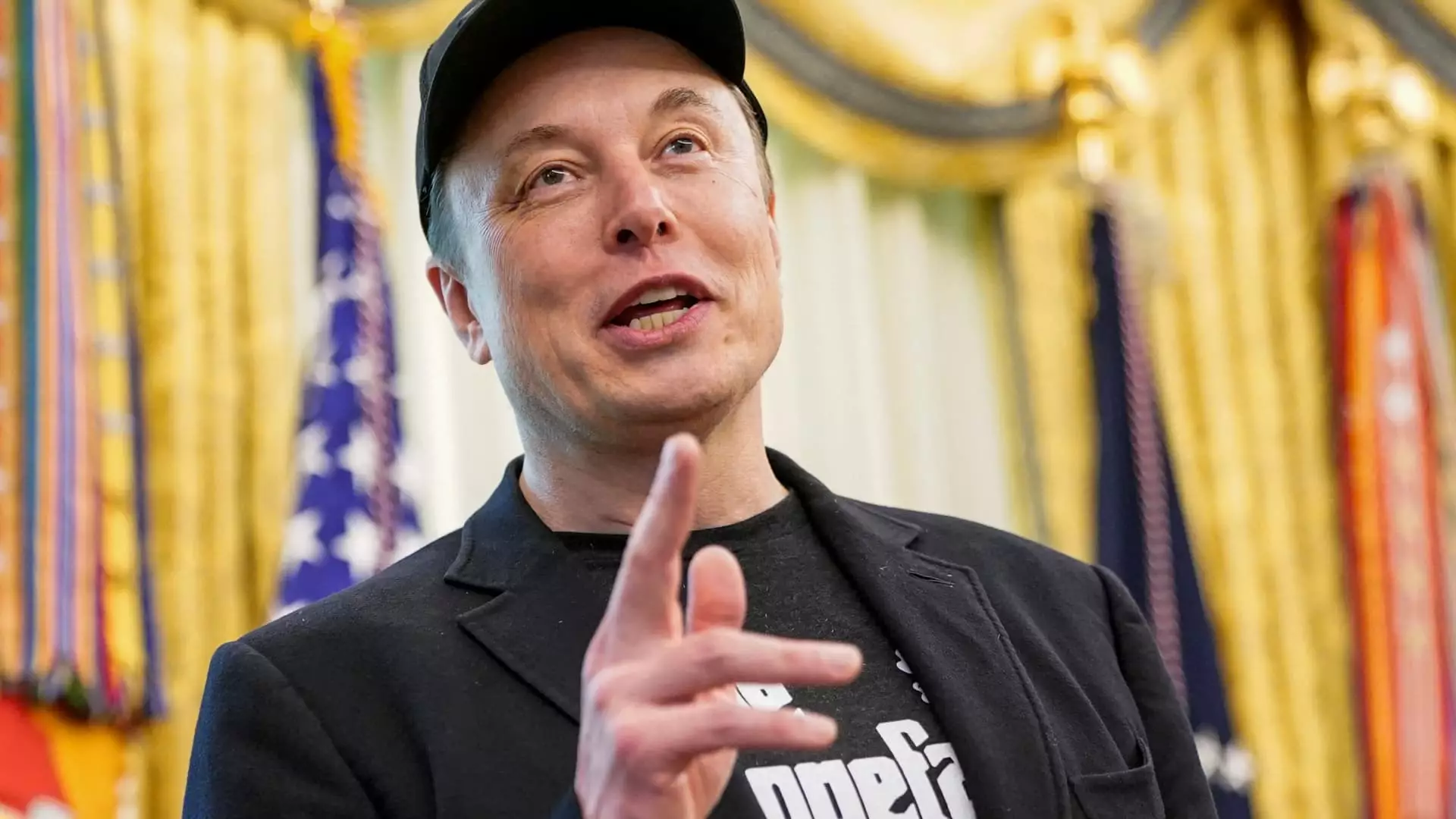In a stunning display of political candor, Elon Musk unleashed a torrent of criticism aimed at a substantial tax-and-spending cut bill backed by President Donald Trump. The billionaire’s comments on social media, describing the legislation as a “disgusting abomination,” reverberate with alarming urgency. Musk’s passionate proclamation didn’t merely criticize the bill; it served as a rallying cry against what he perceives as unsustainable fiscal policy. Musk’s characteristically blunt approach is emblematic of a growing sentiment among many who fear that the financial mismanagement of the country will ultimately lead to detrimental fiscal consequences.
Musk doesn’t mince words, asserting that the bill will exacerbate an already ballooning federal budget deficit to an unfathomable $2.5 trillion. In this era of rapidly accumulating national debt, his remarks should serve as an urgent wake-up call. The billionaire often adopts a dual role of innovator and provocateur, and in this instance, he has positioned himself as a voice advocating for responsible governance.
A Collision of Perspectives: The Administration’s Standpoint
In sharp contrast to Musk’s critiques, the White House, led by press secretary Karoline Leavitt, dismissed the billionaire’s shortcomings, calling his opinions inconsequential. Leavitt’s assertion that the tax bill is “one big, beautiful bill” reveals an obstinate and somewhat dismissive attitude toward dissent. In this political landscape, where differing opinions should provoke critical discourse rather than disdain, the administration’s retort underscores a troubling unwillingness to consider alternative viewpoints.
The administration’s claim that assertions of increased deficits are merely “blatantly wrong” raises significant questions about transparency and accountability. The nonpartisan Congressional Budget Office’s assessment that the bill could inflate the deficit by $3.8 trillion over the next decade should not be easily swept aside. Leavitt’s tactic of accusing the CBO of bias seems like an attempt to undermine relevant criticisms rather than engaging with them meaningfully.
Strategic Alliances: Musk and Congressional Allies
As if echoing Musk’s sentiments, several Republican lawmakers have stepped forward to align themselves with his position, creating an unexpected coalition of dissent. Representatives like Thomas Massie of Kentucky and Senator Mike Lee of Utah have echoed Musk’s concerns, indicating that the fallout from irresponsible spending reaches across typical party lines. Massie’s assertion of Musk being “right” after the billionaire’s critique illustrates how even some within the Republican Party grapple with the implications of excessive fiscal irresponsibility.
Lee’s remarks regarding Congress hollowing out America’s middle class through reckless spending resonate deeply, especially among constituents feeling the pinch from escalating inflation rates. The “Uniparty” criticism signifies a call for a reevaluation of bipartisan alliances that have led to prolonged fiscal neglect. If bipartisan agreement exists in opposition to the Trump-backed bill, perhaps it highlights the necessity for genuine and constructive dialogue in a severely polarized political environment.
Musk’s Broader Concerns: A Vision for the Future
Musk’s critique is not an isolated incident but rather the manifestation of a broader concern he harbors: the financial future of the American populace. His relationship with the administration, characterized by prior endorsements and significant financial backing for Trump’s 2024 campaign, gives his criticism a weight that demands attention. Declarations of tax policies that “undermine” productive endeavors serve as a reminder that fiscal policy profoundly impacts business innovation and growth.
In a climate where government spending and taxation can significantly inhibit or stimulate economic progress, Musk’s call for fiscal responsibility should not be underestimated. For Musk, a future built on debt is not merely a political issue; it is a philosophical one that questions the path society chooses to take in achieving prosperity.
Elon Musk’s passionate denunciation of the tax-and-spending bill represents a crucial moment in American fiscal discourse, urging us to consider the ramifications of our choices. As we navigate the complexities of governance, voices like Musk’s become instrumental in highlighting dissent and encouraging an examination of alternatives that could lead to a sustainable economic future.


Leave a Reply